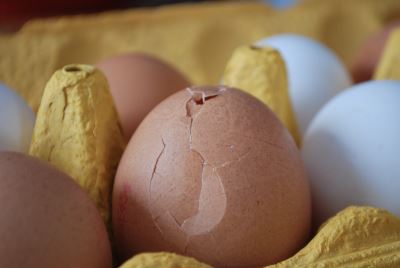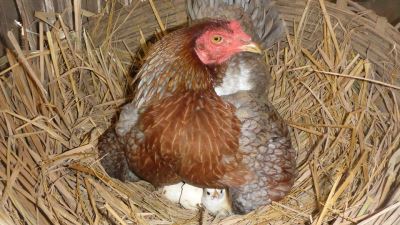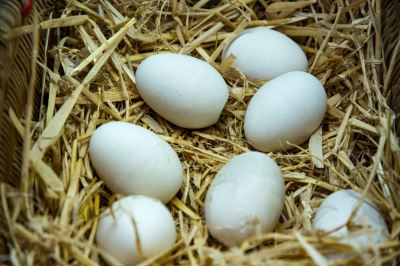Chickens
Explained: Why Chickens Eat Their Eggs
Imagine the feeling of waking up every morning to the sight of fresh, organic eggs in your backyard. Does that smile put a smile on your face? Is it a good reason to start your day right? Well, we don’t see anything wrong with it, unless you find yourself racing with your chickens to eat the eggs.
The moment you notice your chickens eating their own eggs, you have to do something right away to break their habit. They longer they do it, the more difficult it would be to fix it. Stop this wrong habit in any way you can. If possible, begin by making changes in the nesting boxes built in the chicken coop. Still, you can prevent this from happening in the first place. How? We’ll teach you below.
Before we dig deeper into this issue, let us know what this problem is all about.


What Is Egg Eating and Can It Be Prevented?
A form of cannibalism, egg eating is a really wrong habit that may develop among chickens. It may be caused by different things, such as curiosity, boredom, and nutritional deficiencies. And because chickens are so clever, it won’t take long for them to realize that their eggs taste great, they are also excellent protein sources.
Once they had already tasted an egg, chances are, they’ll begin to crack the shells in the nesting boxes. But before that could even happen, here are some things you should do.
- Keep the nesting boxes in the dark corners of the chicken coop. It would be great if you can cover the front portion of the boxes with a dark sheet. Chooks prefer to have a private area, where they can relax and rest. Also, they have a bad eyesight in the dark, so they won’t see things clearly, even their eggs.
- The nesting boxes must be positioned at least 2 feet off the ground. If they cannot see their eggs in their nests, they won’t be tempted to break or play around them.
- Make it a habit to collect the eggs every day. It’d be great if you do it on a scheduled manner, but most preferably, during the day.
- If you see any broken egg, be sure you get rid of it right away and clean the nesting box properly. For better results, use vinegar and water. Once it has dried up, put some clean linings, such as straw or hay.
- Give your chickens access to clean, fresh water. Furthermore, always check whether the water feeder is clean. Once dirt gets in, it may start to smell, leaving a slimy build up inside. Of course, you don’t want that to happen.
- Always check if the nesting boxes have enough straw or hay so that the egg that your chickens lay won’t drop to the solid floor and break. If available, use foam pads to line the bottom of the nesting boxes. But still, there are other options like building a rollaway nesting box with a sloped floor. This is designed in such a way so that once your hens lay eggs, they just roll down backwards behind a wall, where it does not break.
- Make sure every four hens should have one nesting box. Then again, there are instances when they don’t like to lay eggs with other birds. Therefore, it would be an excellent idea to have more boxes to lessen the chances of seeing broken eggs caused by multiple times of being stepped on.


What You Should Do If Your Girls Are Eating Their Eggs
Sad to say, it can be difficult to stop a chicken from eating her eggs once she has already eaten them. But don’t lose hope. You can still do something about it.
- If you can identify which chicken is eating the eggs, isolate her from the rest of the flock right away. Chickens are smart creatures. When they curious about something, they will start to mimic the same behavior.
- Collect the eggs regularly so that there’ll be lesser chances of breaking them.
- Scare them with mustard. Chickens hate it. Get a broken egg and fill it with lots of mustard. Next, put it back to their nesting box. The next time they will try to eat the egg, they’ll be discouraged.
- Trick them with golf balls and put them in their nests. For some reasons, they won’t break. Thus, they’d just give up their hopes of cracking it.
- Opt for rollaway nesting boxes. That way, if hens lay eggs, they cannot reach them because they roll down a slope.
If you think you have done everything, but the problem still exists, you might have to take your last resort, which is to get rid of the primary culprit. Well, if that is too harsh for you, it would be wise to speak with someone more knowledgeable about chooks.
Image Sources: [1] [2] [3] [4] [5] [6]





